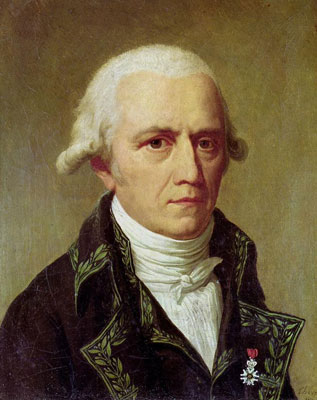You May Already be a Neolamarckist

I’m reading a fascinating book by Arthur Koestler called The Case of the Midwife Toad about an Austrian scientist named Paul Kammerer, who committed suicide after being accused of falsifying experimental results.
Kammerer believed in the theory advanced by Jean-Baptiste Lamarck, who advance a theory of evolution a generation before Charles Darwin published his Origin of Species in 1859.
Lamarck’s theory was quite different, though, in one essential respect: unlike Darwin, he believed in the inheritance of acquired characteristics.
Charles Darwin and the Darwinists of the present era believe that the only traits we pass on to our progeny are those that we ourselves inherited from our parents. They believe that the process of evolution is due to random mutations that occur over thousands of years.
“Since they are random,” Koestler explains, “most of these mutations produce harmful or lethal, but there must also occur from time to time a few lucky hits which confer some minute advantage on the carrier of the mutated chromosome, and this will be preserved by the operation of natural selection.”
Many scientists have wondered how this random process could produce the many astonishing adaptations that the world’s creatures have developed over the eons. Koestler quotes one such scientist who compared this theory to “throwing bricks together in heaps in the hopes that they will arrange themselves in an inhabitable house.”
Lamarck and Kammerer believed that characteristics acquired in response to intense and persistent challenges of the environment over several generations become eventually inherited. For Lamarck it was the long neck of the giraffe. For Kammerer it was the small callosities with thorny spines on the forelimbs of the male midwife toad, which give it a better grip on the female when mating.
While geneticists have long argued that the inheritable DNA of a creature cannot be changed by that individual’s experience, some modern researchers in “epigenetics” have found ways in which acquired traits could be inherited through a process involving “daughter cells,” whatever they are.
These epigeneticists style themselves ‘neolamarckists.’
I know next to nothing about biology, but I think the Lamarckian theory is a more sensible way to account for the complex adaptations that species make to survive in a changing world. Think of the nests birds build, or the wasps that lay their eggs in the abdomen of some unfortunate host beetle.
And if our experience is indeed passed along in some way, that would provide an explanation for the ‘collective memory’ of mankind that Jung talks about. It would explain the sense of deja vu that we feel with no apparent explanation and the sense of familiarity we feel when faced with primeval symbols and archetypes.
Why, if Lamarck and Kammerer are right, then a guy like me could have a dream and see things that happened long ago in the dim recesses of history.
